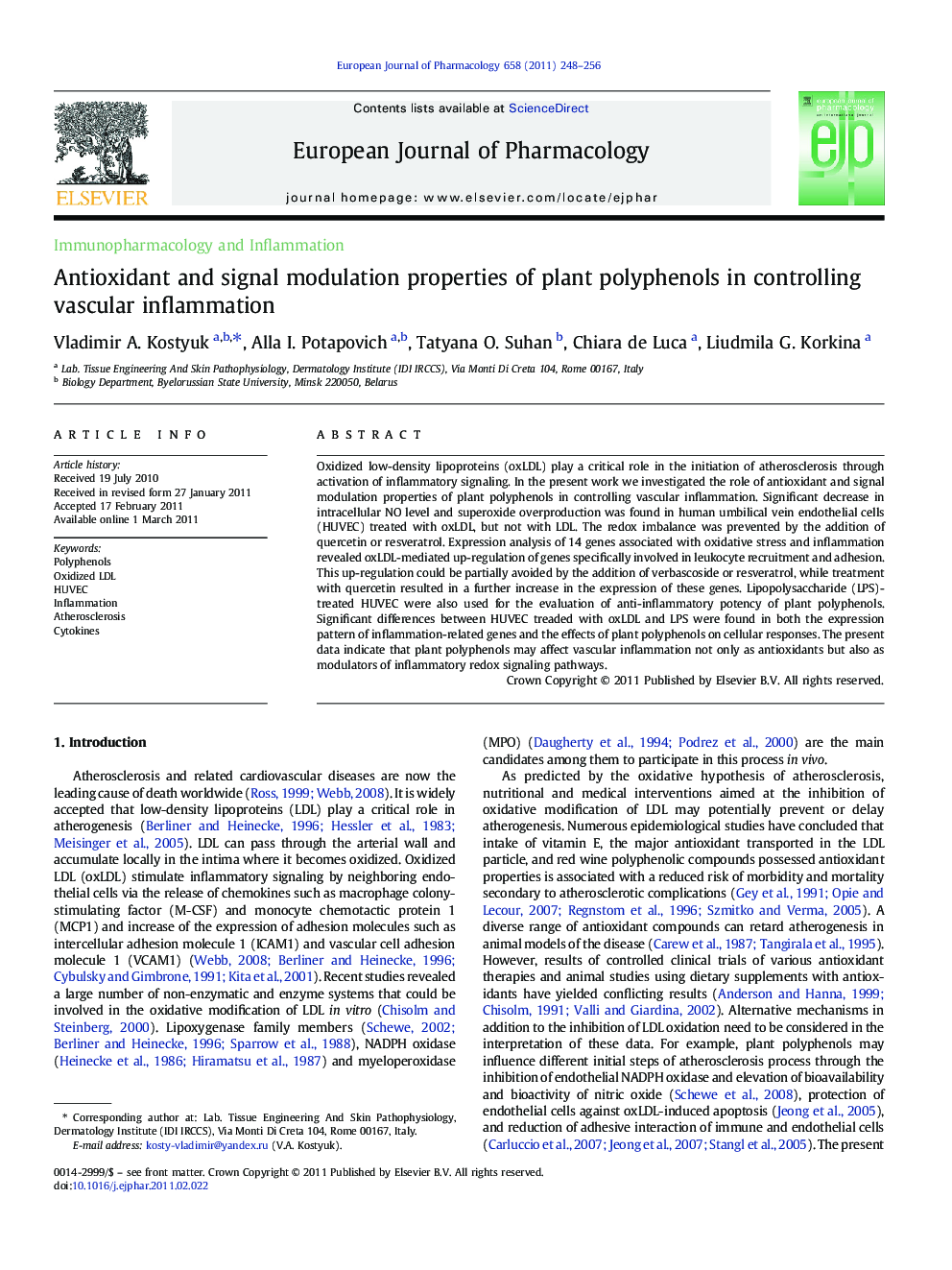| Article ID | Journal | Published Year | Pages | File Type |
|---|---|---|---|---|
| 2532956 | European Journal of Pharmacology | 2011 | 9 Pages |
Oxidized low-density lipoproteins (oxLDL) play a critical role in the initiation of atherosclerosis through activation of inflammatory signaling. In the present work we investigated the role of antioxidant and signal modulation properties of plant polyphenols in controlling vascular inflammation. Significant decrease in intracellular NO level and superoxide overproduction was found in human umbilical vein endothelial cells (HUVEC) treated with oxLDL, but not with LDL. The redox imbalance was prevented by the addition of quercetin or resveratrol. Expression analysis of 14 genes associated with oxidative stress and inflammation revealed oxLDL-mediated up-regulation of genes specifically involved in leukocyte recruitment and adhesion. This up-regulation could be partially avoided by the addition of verbascoside or resveratrol, while treatment with quercetin resulted in a further increase in the expression of these genes. Lipopolysaccharide (LPS)-treated HUVEC were also used for the evaluation of anti-inflammatory potency of plant polyphenols. Significant differences between HUVEC treaded with oxLDL and LPS were found in both the expression pattern of inflammation-related genes and the effects of plant polyphenols on cellular responses. The present data indicate that plant polyphenols may affect vascular inflammation not only as antioxidants but also as modulators of inflammatory redox signaling pathways.
